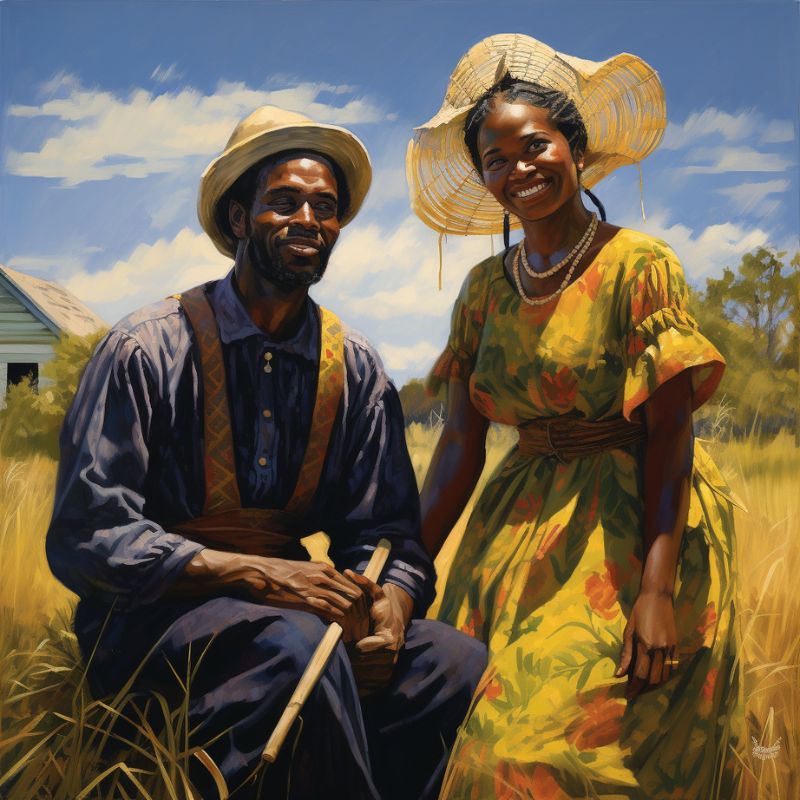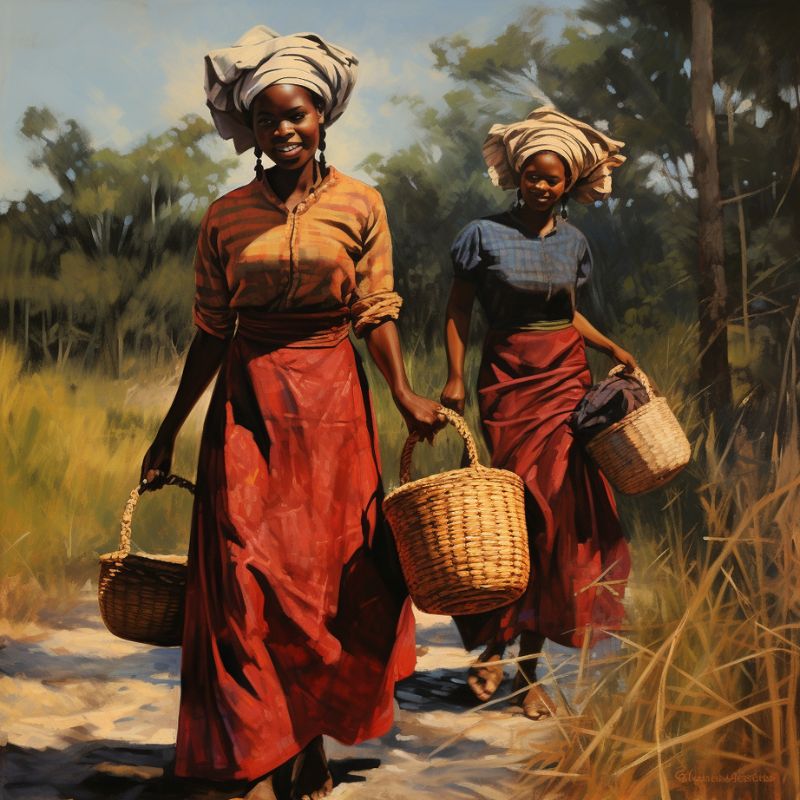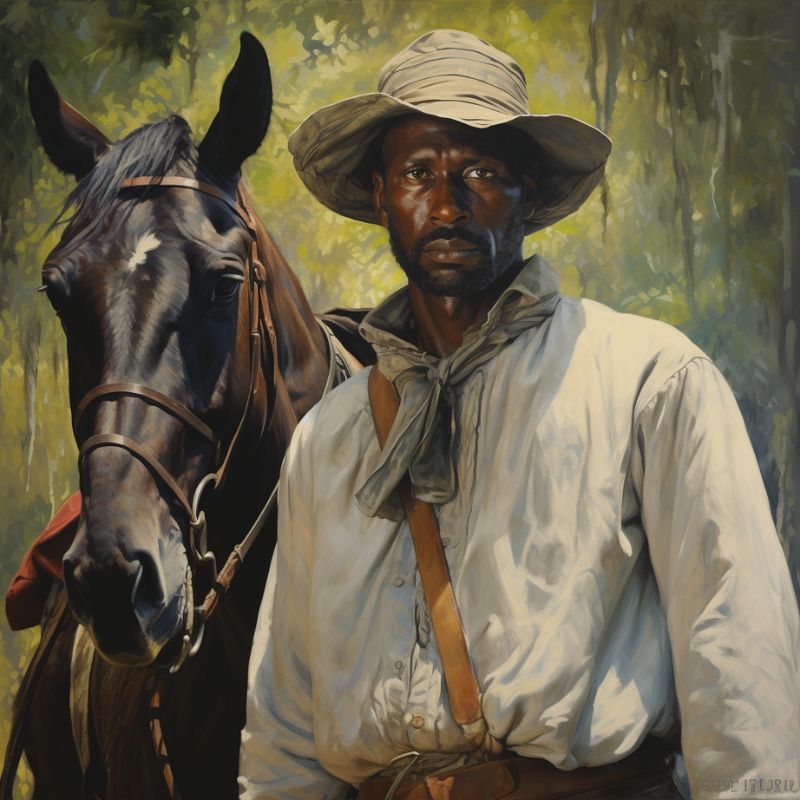Table of contents
Introduction
Who were the Gullahs?
The origins of the Gullah
Gullah life as slaves
The Gullah revolt
John Horse: the Gullah leader
Life after the revolt
The Gullah legacy today
Gullah cultural influence
The importance of Gullah history
Conclusion
Frequently asked questions
Introduction
The Gullah, led by John Horse, are a unique and fascinating African-American community who have played an essential role in the history of the United States. Their story is marked by the struggle for freedom, resilience and the preservation of their distinct culture. In this article, we’ll explore in depth the history of the Gullah, their origins, their life as slaves, their revolt led by John Horse, and their legacy that endures today.

Who were the Gullah?
The Gullah were an extraordinary African-American community whose rich culture and unique heritage have left their mark on American history. Originating in the coastal regions of the United States, particularly South Carolina and Georgia, the Gullah were much more than just an ethnic group. They represented a fascinating fusion of African heritage and American influences.
The Gullah were descendants of Africans forcibly deported to the Americas during the slave trade. They maintained a strong connection with their African roots despite the difficult circumstances that marked their history. Their distinct cultural identity was anchored in their Creole language, « Gullah » or« Geechee, » which was a unique blend of African languages and English.
What made the Gullahs even more remarkable was their ability to preserve their African traditions, music, cuisine and spirituality against a backdrop of slavery and segregation. They managed to maintain these precious cultural elements in secret, despite the prohibitions imposed by their slave owners.
The Gullah were also known for their resilience and sense of community. They lived in harmony with nature, drawing on the coastal marshes for their livelihood. Their communities were characterized by strong family ties and social cohesion.
The origins of the Gullah
The origins of the Gullah go back to the days of the slave trade. The Gullah’s ancestors were Africans captured and forcibly brought to the United States to work on rice and indigo plantations. Their African culture survived despite oppression and segregation, and was enriched by new American influences.

Gullah life as slaves
Gullah life as slaves was hard and marked by hard work in the rice fields. However, they managed to preserve their African culture and traditions in secret, despite the prohibitions imposed by their slave owners.
The Gullah revolt
The Gullah revolt, led by John Horse, is a crucial chapter in their history. In 1822, John Horse and other Gullah organized a daring rebellion against their oppressors. This revolt was aimed at gaining freedom and establishing an autonomous community.
John Horse: The Gullah leader
John Horse, also known as Juan Caballo, is an emblematic figure in the history of the Gullah, the African-American community that has left an indelible mark on the history of the United States. He was a charismatic and visionary leader who played a central role in the Gullah revolt of 1822.
John Horse was much more than just a revolt leader. He was a man of courage and unshakeable determination. His vision of freedom and autonomy for the Gullah inspired the whole community to rise up against the oppression that had weighed down on them for years.
The revolt led by John Horse was a bold act of resistance against slave owners and the system of slavery. It aimed to win freedom for the Gullah and establish an autonomous community where they could live according to their own rules and traditions.

John Horse’s personality and charismatic leadership were essential in mobilizing the Gullah for the revolt. He knew how to galvanize his compatriots, how to instill in them a sense of pride and hope. His ability to lead and make strategic decisions was crucial to the success of the revolt.
After the successful revolt, John Horse continued to play an important role in the life of the Gullah community. He helped organize their new life in the marshes and coastal islands, where they could finally live in freedom and preserve their culture.
John Horse embodies the Gullah spirit of resistance and determination. His legacy is a source of inspiration for future generations, reminding us of the importance of fighting for freedom, justice and the preservation of culture, even in the most difficult of circumstances.
Life after the revolt
After their successful revolt, the Gullah established autonomous communities in the marshes and coastal islands. They continued to preserve their culture, language and traditions, while living in harmony with nature.
The Gullah heritage today
The Gullah legacy lives on today thanks to their descendants, who continue to preserve their culture and traditions. The Gullahs played a key role in the struggle for civil rights and the preservation of African-American culture.
Gullah cultural influence
Gullah culture has had a profound influence on American music, cuisine and spirituality. Gullah Gospel and traditional Gullah dishes, such as gumbo and smelt stew, have become important elements of American culture.
The importance of Gullah history
The story of the Gullahs, led by John Horse, is one of resilience, struggle and triumph. It reminds us of the importance of preserving cultural diversity and fighting for justice. The Gullahs have shown the world the strength of African-American culture.
Conclusion
In conclusion, the Gullahs, led by John Horse, have left an indelible mark on the history of the United States. Their story is a testament to the human capacity to resist oppression and preserve culture despite challenges. Today, we must continue to celebrate and support efforts to preserve the Gullah legacy.
Frequently asked questions
- Who were the Gullah?
The Gullah were an African-American community living in the coastal regions of the United States, particularly in South Carolina and Georgia. - Where did the Gullahs come from?
The Gullah were descendants of Africans captured and forcibly brought to the United States during the slave trade. - Who was John Horse?
John Horse was the charismatic leader of the Gullah revolt in 1822. - What is the cultural influence of the Gullah?
Gullah culture has influenced American music, cuisine and spirituality, contributing to the country’s cultural diversity. - How important is Gullah history?
The Gullah story is a reminder of the importance of preserving cultural diversity and fighting for justice, while demonstrating human resilience in the face of oppression.
Read also our article: Maya Angelou: An inspiring icon for Black women










